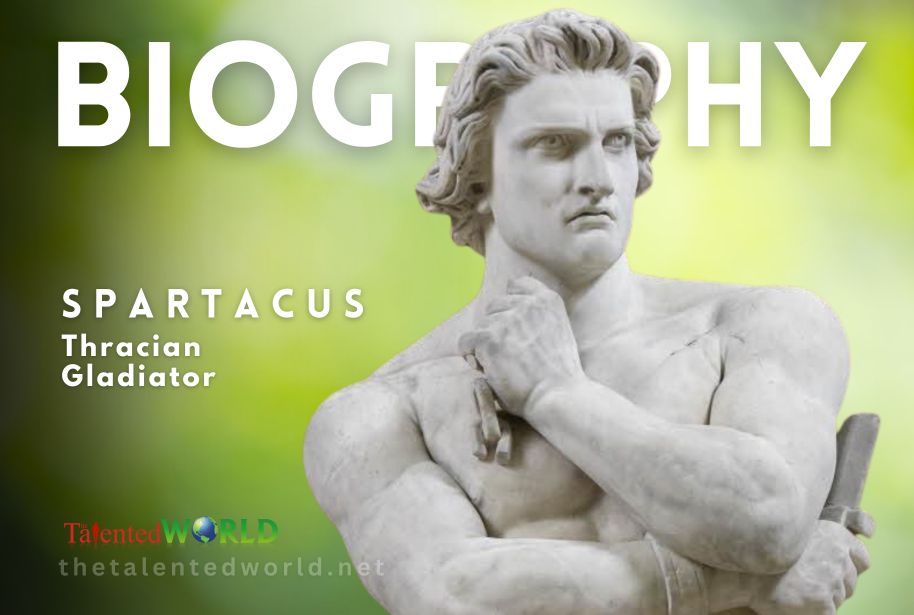| Birth | c. 103 BC |
| Place of Birth | Near the Strymon River in present-day Bulgaria |
| Death | 71 BC (aged 32) |
| Place of Death | Near Sele River in Lucania, Italy |
| Years of Service | 73–71 BC |
| Commands Held | Rebel slave army |
| Battles/Wars | Third Servile War |
| Origin | Thracian, possibly from the Maedi tribe |
| Pre-Revolt | Served as a soldier with the Romans, later enslaved and trained as a gladiator |
| Revolt Beginnings | Escaped from a gladiatorial school near Capua with about 70 other gladiators in 73 BC |
| Army Size | Grew to an estimated 70,000 enslaved people and others |
| Tactics | Demonstrated strong tactical skills despite followers’ lack of formal military training |
| Opposition | Faced multiple Roman military units, ultimately defeated by Marcus Licinius Crassus |
| Death | Presumed killed in the final battle, the body was never found |
| Aftermath | 6,000 surviving rebels crucified along the Appian Way |
| Legacy | Symbol of resistance and revolutionary movements; inspired cultural works and figures like Karl Marx |
| Sources | The main sources are Plutarch (Life of Crassus) and Appian (Civil Wars), written over a century after his death |
| Spartacus’s Wife | Enslaved with him, described as a prophetess of the Maedi tribe |
| Historical Debate | Motives and goals debated; some suggest escape from Italy, others hint at broader social reform |






